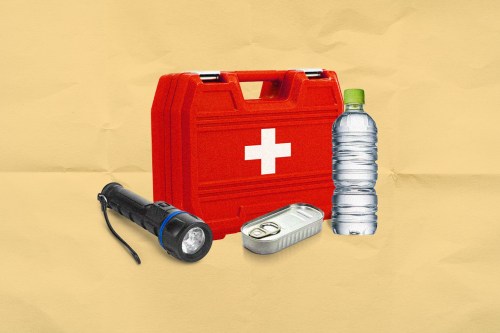Despite its butterflies-and-rainbows connotation, pursuing a career that matches your passion doesn’t always give way to the bliss that it seems it should. In fact, the grandiose nature of the word “passion” itself can lead you to box yourself in to preconceived notions of what that should look like—and, potentially, to miss positive opportunities falling outside that rigid definition. So, instead of chasing a career that you believe reflects your passion points, work to follow your curiosity—without any particular aim or purpose—as a means for finding fulfillment in work. You may be surprised to learn that doing so can even (ironically) move you toward the very work you’re most passionate about.
Experts in This Article
Jazmine Reed-Clark is a career wellness coach, writer, and host of the podcast Office Politics. She seeks to help people find confidence at work, security within themselves, and inspiration at home.
Krystal Conner, PhD, is a dynamic leader, speaker, coach, and trainer. She is the CEO of K. Conner Consulting, LLC and ENVIRO AgScience, Inc.
Megan Hellerer is a career-focused life coach for “underfulfilled overachievers,” and the creator of the online career-coaching bootcamp, “WTF Am I Doing with My Life?” Previously, she spent 8 years as a business-development executive at Google, before founding Megan Hellerer coaching.
Figuring out how to get on this path toward meaningful work (and avoid the relentlessness of hustle culture), is the topic of the latest episode of The Well+Good Podcast. In it, career counselor and host of the podcast Office PoliticsJazmine Reed-Clark; CEO of K. Conner Consulting Krystal Conner, PhD; and career coach Megan Hellerer all share insights regarding this post-lockdown time of upheaval, and why it’s led so many to reconsider, to positive effect, just what they’re looking for in their jobs.
Listen to the full episode here:
In many ways, life during the pandemic has inspired both employees and employers to reimagine the workplace, retiring old norms and establishing new ones in their place. With that in mind, the existential question of ‘Why do we work, and what for?’ has emerged anew. “I don’t want to say that people are waking up now, since many of us have been awake to the fact that the capitalist society in which we work is unhealthy…but more people are understanding their options and want to explore them,” says Reed-Clark. “People are asking themselves, ‘What do I really want to do, and how do I do that while still surviving in America?’”
“It’s about doing things just because they’re interesting to you, and trusting that it’s leading you somewhere, that that information is important and is calibrating your internal navigation system.” —career coach Megan Hellerer
According to Hellerer, you’ll uncover a more helpful answer to that question by keeping the concept of passion from looming large. “I often say, forget the destination, and forget your need to know what your purpose or passion is,” she says. “Instead, follow your curiosity. You can do that with something as small as listening to a podcast or even going down an Instagram rabbit hole on some topic that in the past you would have said, ‘This is a waste of time.’ It’s about doing things just because they’re interesting to you, and trusting that it’s leading you somewhere, that that information is important and is calibrating your internal navigation system.”

Making space for this type of intentionality will get you closer to finding fulfillment in work than setting your sights on a singular passion, whether it inspires a way in which you might reframe your current role or leads you toward more fitting opportunities. Not to mention, filling your cup with whatever satisfies your curiosity allows for more work-life balance—or, rather, more of what really matters.
“I think balance is a misnomer,” says Dr. Conner. “It’s not about giving equal time to things—like giving three hours to this and three hours to that—as that’s just too much pressure. Instead, it’s about how you can do all the things that really matter. Balance, to me, is a question of ‘Can you be present where you are when you’re there?’”
The degree to which you’re present at work versus present in your personal life will change over time, with each one taking the lead during different seasons of your life, says Hellerer, who suggests dropping the concept of a linear, ladder-shaped career path in favor of a more adaptable approach. “Instead of that rigidity, we want to have this flexibility where we’re allowed to constantly be taking in information about ourselves and the world,” she says. And given the uncertain state of the world at the moment, allowing for those adaptations in response to change has perhaps never been more important or more relevant.
Oh hi! You look like someone who loves free workouts, discounts for cutting-edge wellness brands, and exclusive Well+Good content. Sign up for Well+, our online community of wellness insiders, and unlock your rewards instantly.
Sign Up for Our Daily Newsletter
Get all the latest in wellness, trends, food, fitness, beauty, and more delivered right to your inbox.
Got it, you've been added to our email list.










